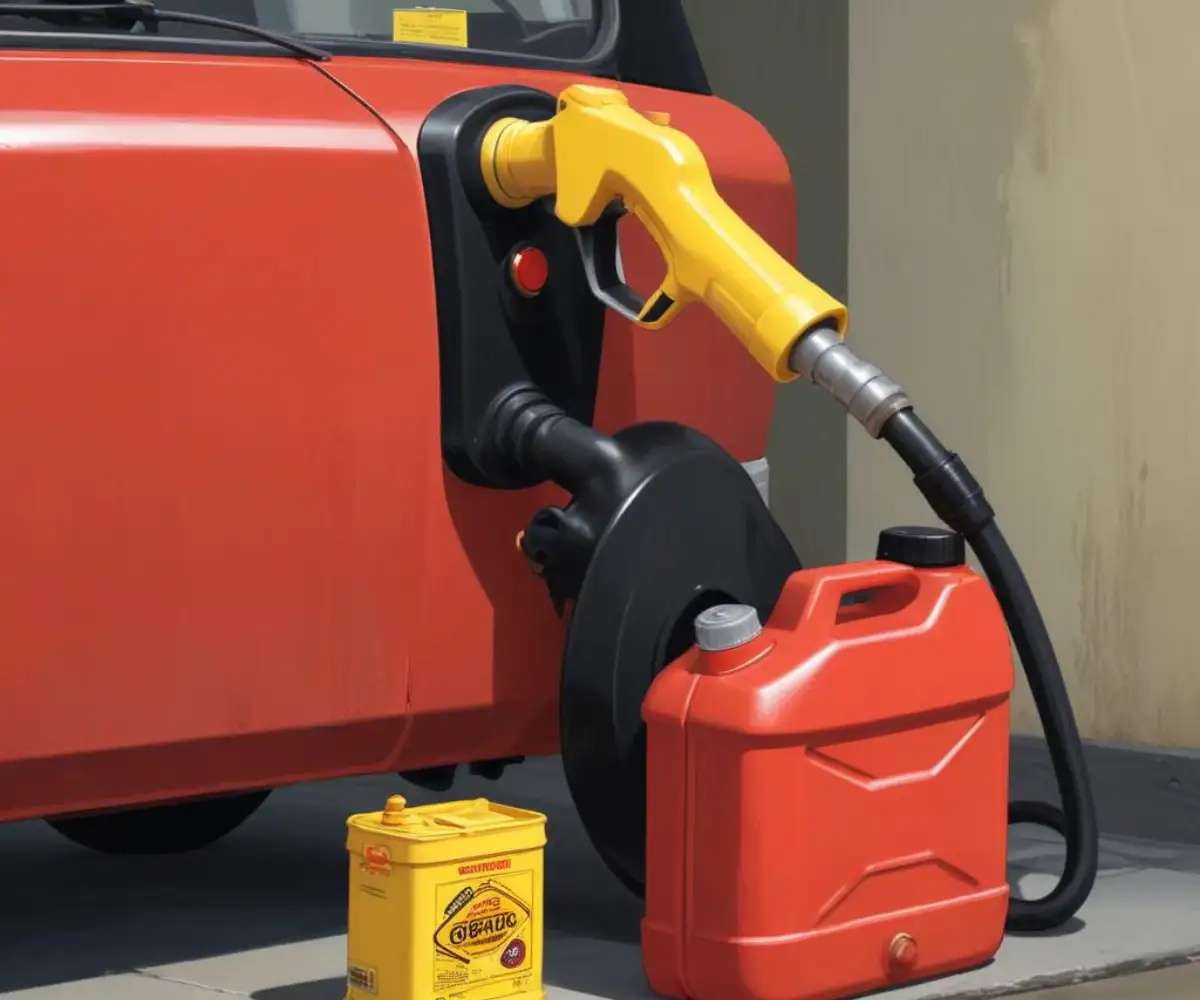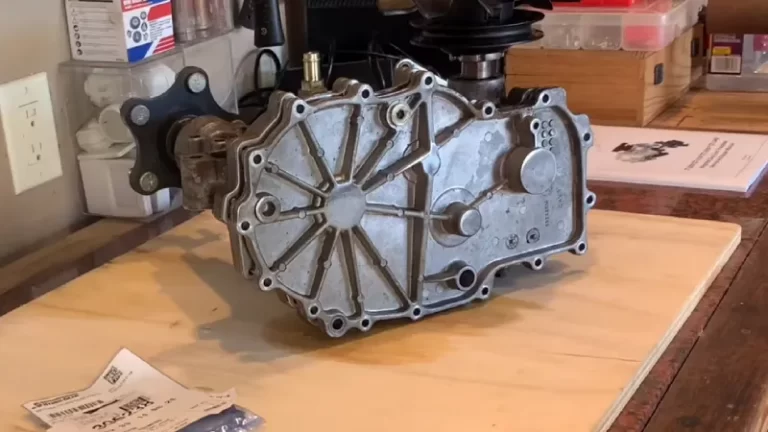Ethanol Free Gas for Pressure Washer: The Ultimate Guide to Preventing Engine Damage
There’s nothing more frustrating than pulling out your pressure washer for a big cleaning job, only to have it sputter, stall, or refuse to start altogether. You pull the cord until your arm aches, check the spark plug, and question if the machine has met its end. More often than not, the culprit isn’t a mechanical failure but something much simpler: the fuel in your gas tank.
Modern gasoline, specifically the ethanol blended into it, is the silent killer of small engines. While it works fine in your car, it can wreak havoc on the intricate components of your pressure washer. This guide will walk you through why ethanol is a problem and how choosing the right fuel can save you from costly repairs and ensure your machine starts reliably every time.
You'll Learn About
The Problem with Ethanol: Why Standard Pump Gas Is Damaging Your Pressure Washer
Ethanol is an alcohol added to gasoline for various reasons, including increasing octane and reducing emissions. However, this additive has several properties that are incredibly harmful to the small engines found in outdoor power equipment.
The primary issue is that ethanol is hygroscopic, meaning it attracts and absorbs water from the atmosphere. This moisture can lead to a destructive process called phase separation, where the water-ethanol mixture separates from the gasoline and settles at the bottom of your fuel tank. Since the fuel pickup is at the bottom, your engine tries to run on this corrosive, non-combustible sludge, leading to severe damage.
Three Key Ways Ethanol Destroys Small Engines
1. Corrosion and Rust: The water pulled in by ethanol causes rust and corrosion on metal parts within the fuel system and carburetor. This is a leading cause of engine failure, especially for equipment that sits unused for extended periods.
2. Fuel System Degradation: Ethanol is a powerful solvent that can break down, soften, and dissolve rubber and plastic components. This includes fuel lines, gaskets, and carburetor seals, leading to fuel leaks and engine performance issues.
3. Gummy Buildup: Over time, ethanol can cause varnish and gummy deposits to form in the carburetor’s tiny passages. This buildup restricts fuel flow, making the engine hard to start, run rough, or stall completely. You can learn more about the critical mistakes to avoid with E10 gas in your pressure washer to understand the full scope of the problem.
The Superior Solution: Why Ethanol-Free Gas is a Must-Have
The single best way to protect your investment and ensure your pressure washer’s longevity is to use ethanol-free gasoline. This pure petroleum fuel eliminates all the problems associated with ethanol-blended pump gas. By making this simple switch, you provide your machine with the clean, stable fuel it was designed to run on.
The benefits are immediate and long-lasting. Ethanol-free fuel prevents corrosion, protects sensitive fuel system parts, and ensures your pressure washer starts easily and runs at peak performance. It also has a significantly longer shelf life, making it ideal for equipment that is only used seasonally.
Your Go-To Options: Where to Find and How to Choose Ethanol-Free Fuel
Once you’ve decided to make the switch, you have a few excellent options for sourcing ethanol-free gasoline. The best choice for you will depend on convenience, cost, and how you use your equipment.
Option 1: Pre-Mixed Canned Fuel (The Ultimate Convenience)
For absolute peak performance and convenience, pre-mixed canned fuels are the top-tier choice. Brands like TruFuel and VP Racing Fuels offer precisely engineered, ethanol-free gasoline that is ready to pour directly into your tank. These fuels contain synthetic stabilizers that keep them fresh for years, eliminating the need for extra additives.
They are specifically designed for 4-cycle engines found in pressure washers, providing clean combustion and superior protection. If you’re wondering about specific brands, exploring the question of whether you can use TruFuel in your pressure washer will provide deeper insights into this premium option.

Option 2: Ethanol-Free Gas From the Pump (The Cost-Effective Choice)
A more budget-friendly option is to find a local gas station that sells ethanol-free gasoline at the pump. This fuel is often marketed as “recreational fuel” or “pure gasoline” and is commonly found near marinas, race tracks, or in rural areas. Websites and apps like Pure-Gas.org are excellent resources for locating a station near you.
While cheaper than canned fuel, you should add a high-quality fuel stabilizer to your storage can, especially if the fuel will sit for more than 30 days. This will prevent it from degrading and ensure it’s ready to go when you need it.
Fuel Performance at a Glance: A Comparison Table
To help you decide, here is a clear comparison of the most common fuel types available for your pressure washer.
| Fuel Type | Primary Benefit | Main Drawback | Ideal For |
|---|---|---|---|
| E10 Pump Gas | Widely available and inexpensive | Causes corrosion, gumming, and damages fuel lines | Not Recommended |
| Ethanol-Free Pump Gas | Cost-effective and protects engine | Can be difficult to find; requires stabilizer for storage | Regular users who want to save money |
| Canned Ethanol-Free Fuel | Ultimate convenience and long-term stability | Higher cost per gallon | Infrequent users and those seeking maximum engine protection |
Making the Switch: A Step-by-Step Guide to Transitioning Safely
Switching your pressure washer to ethanol-free gasoline is a straightforward process, but it’s crucial to do it correctly to avoid contaminating the new, clean fuel with old, ethanol-blended gas.
Step 1: Completely Drain the Old Fuel
First, safely drain any existing gasoline from the fuel tank into an approved container. Next, start the pressure washer and let it run until it stalls. This crucial step ensures all the old fuel is purged from the carburetor and fuel lines.
Step 2: Inspect Fuel System Components
Before adding new fuel, take a moment to inspect the fuel lines and primer bulb for any signs of cracking, haziness, or brittleness caused by previous ethanol exposure. If you notice any damage, now is the perfect time to replace these inexpensive parts.
Step 3: Refill with High-Quality Ethanol-Free Fuel
Fill the tank with your chosen ethanol-free fuel, whether it’s from a can or a pump. If you’re using fuel from the pump that you plan to store for more than a month, be sure to add a fuel stabilizer according to the manufacturer’s instructions.
Common Questions and Critical Mistakes to Avoid
Even with the best intentions, it’s easy to make a mistake when it comes to fueling your equipment. Here are answers to common questions and pitfalls to steer clear of.
Is premium high-octane gas the same as ethanol-free?
No. Octane rating is not related to ethanol content. Many premium-grade fuels at the pump still contain up to 10% ethanol. Unless the pump is explicitly labeled “Ethanol-Free,” you should assume it contains ethanol.
What if I accidentally used E10 gas?
If you used it for a short period, it’s not a catastrophe. The best course of action is to drain the E10 fuel as soon as possible and run the engine dry before refilling with ethanol-free gas. The longer ethanol fuel sits, the more damage it can do.
How should I store my pressure washer?
For long-term storage (over 30 days), it’s best to either drain the fuel system completely or fill the tank with stabilized, ethanol-free fuel. Proper storage in a clean, dry place is just as important for overall equipment health as regular maintenance, similar to how you would fix a hole in the bottom of a fire pit before its next use to ensure safety and longevity.
Your Engine’s Future is in Your Fuel Can
Choosing the right fuel for your pressure washer is the single most effective step you can take to ensure its reliability and extend its life. By switching to ethanol-free gasoline, you are proactively protecting your investment from the corrosive and damaging effects of modern pump gas. This simple change means fewer startup headaches, better performance, and the peace of mind that your machine will be ready to tackle any job when you are.
Frequently Asked Questions
Why should I use ethanol-free gas in my pressure washer?
Ethanol attracts and absorbs water, which can lead to rust and corrosion of the metal parts inside the engine. Using ethanol-free gasoline helps to prevent this moisture-related damage, especially for equipment like pressure washers that may be used infrequently.
Can I use regular gasoline in my pressure washer?
Yes, you can typically use regular unleaded gasoline with an octane rating of at least 87 and no more than 10% ethanol (E10). However, for the long-term health of the engine, ethanol-free fuel is often recommended to avoid potential problems.
What kind of damage can ethanol cause to a pressure washer engine?
Ethanol can act as a solvent, loosening deposits in the fuel tank that can clog the carburetor and fuel lines. It also absorbs moisture from the air, which can lead to corrosion and the breakdown of plastic and rubber components within the fuel system.
Is premium gas the same as ethanol-free gas?
No, premium gas is not automatically ethanol-free. The term “premium” refers to a higher octane rating, not its ethanol content. Always check the fuel pump for a specific “ethanol-free” or “E0” label to be sure.
How long does ethanol-free gas last?
When stored in a sealed container in a cool, dry place, ethanol-free gasoline can last for up to six months. For longer storage periods, adding a fuel stabilizer is recommended to maintain fuel quality.
Where can I find ethanol-free gas?
You can often find ethanol-free gasoline at marinas and gas stations in boating areas, where it is sometimes sold as “recreational fuel”. There are also websites and mobile apps available that can help you locate stations selling pure, ethanol-free gas in your area.

